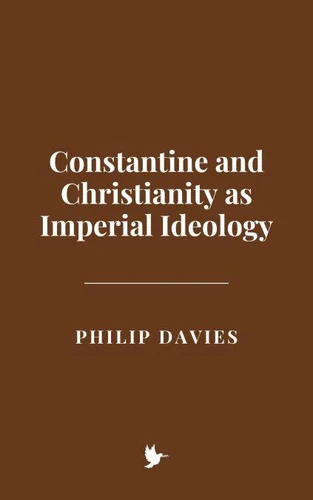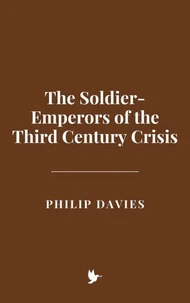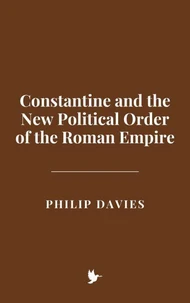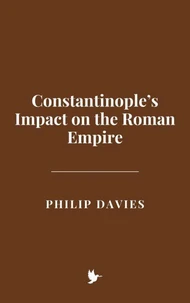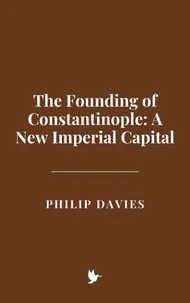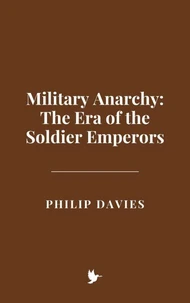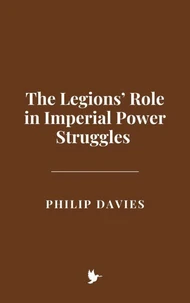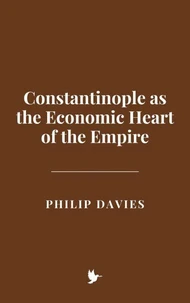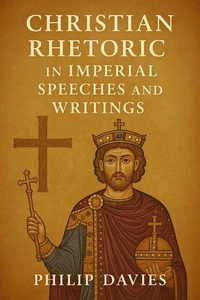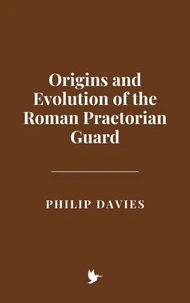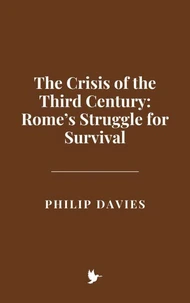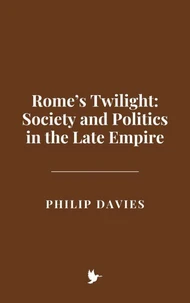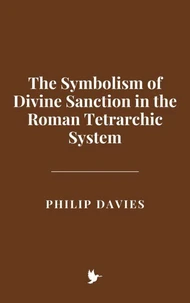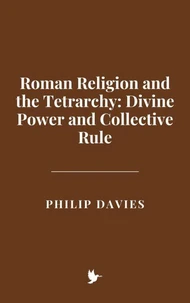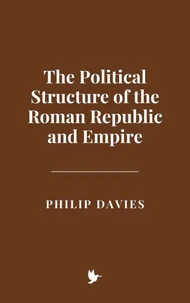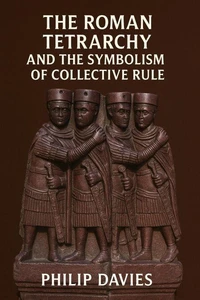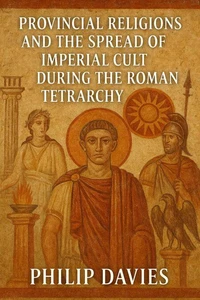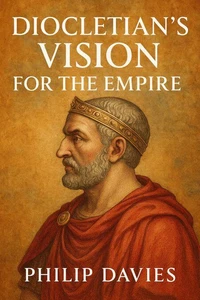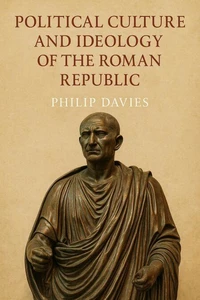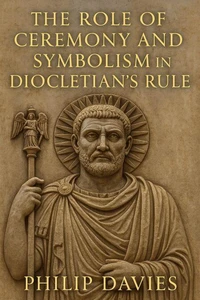Constantine and Christianity as Imperial Ideology
Par :Formats :
Disponible dans votre compte client Decitre ou Furet du Nord dès validation de votre commande. Le format ePub est :
- Compatible avec une lecture sur My Vivlio (smartphone, tablette, ordinateur)
- Compatible avec une lecture sur liseuses Vivlio
- Pour les liseuses autres que Vivlio, vous devez utiliser le logiciel Adobe Digital Edition. Non compatible avec la lecture sur les liseuses Kindle, Remarkable et Sony
 , qui est-ce ?
, qui est-ce ?Notre partenaire de plateforme de lecture numérique où vous retrouverez l'ensemble de vos ebooks gratuitement
Pour en savoir plus sur nos ebooks, consultez notre aide en ligne ici
- FormatePub
- ISBN8230929062
- EAN9798230929062
- Date de parution10/07/2025
- Protection num.pas de protection
- Infos supplémentairesepub
- ÉditeurIndependently Published
Résumé
Constantine and Christianity as Imperial Ideology reveals the untold story of how one emperor's bold embrace of a new faith reshaped the destiny of an empire-and the world. When Constantine the Great ascended to power in a fracturing Roman Empire, he faced monumental challenges: political chaos, religious conflict, and the urgent need to unify diverse peoples under a single banner. His unprecedented decision to fuse Christianity with imperial authority ignited a seismic transformation that ended centuries of pagan dominance and forged a new Christian empire.
This riveting and meticulously researched book takes readers deep into the heart of the fourth century, exploring Constantine's visionary strategies as he harnessed Christian symbols, rhetoric, and doctrine to legitimize his reign and consolidate power. From the miraculous Battle of the Milvian Bridge and the groundbreaking Edict of Milan to the Council of Nicaea and the founding of Constantinople, Constantine and Christianity as Imperial Ideology unpacks how faith became the empire's ultimate ideology.
Drawing on primary sources, historical analysis, and rich cultural context, this volume reveals the complex interplay of politics, religion, and symbolism that defined Constantine's legacy. It illuminates the rise of Christian imperial ceremonies, the reshaping of divine authority, and the contentious decline of paganism-all pivotal moments that shaped the medieval world and the Western political imagination.
Perfect for history enthusiasts, scholars, and readers fascinated by the origins of Christianity's influence on power and culture, this book offers a compelling narrative that connects ancient transformations to contemporary questions about faith, leadership, and identity. Discover how Constantine's revolutionary vision laid the foundations for a Christian empire-one whose echoes continue to resonate across centuries.
This riveting and meticulously researched book takes readers deep into the heart of the fourth century, exploring Constantine's visionary strategies as he harnessed Christian symbols, rhetoric, and doctrine to legitimize his reign and consolidate power. From the miraculous Battle of the Milvian Bridge and the groundbreaking Edict of Milan to the Council of Nicaea and the founding of Constantinople, Constantine and Christianity as Imperial Ideology unpacks how faith became the empire's ultimate ideology.
Drawing on primary sources, historical analysis, and rich cultural context, this volume reveals the complex interplay of politics, religion, and symbolism that defined Constantine's legacy. It illuminates the rise of Christian imperial ceremonies, the reshaping of divine authority, and the contentious decline of paganism-all pivotal moments that shaped the medieval world and the Western political imagination.
Perfect for history enthusiasts, scholars, and readers fascinated by the origins of Christianity's influence on power and culture, this book offers a compelling narrative that connects ancient transformations to contemporary questions about faith, leadership, and identity. Discover how Constantine's revolutionary vision laid the foundations for a Christian empire-one whose echoes continue to resonate across centuries.
Constantine and Christianity as Imperial Ideology reveals the untold story of how one emperor's bold embrace of a new faith reshaped the destiny of an empire-and the world. When Constantine the Great ascended to power in a fracturing Roman Empire, he faced monumental challenges: political chaos, religious conflict, and the urgent need to unify diverse peoples under a single banner. His unprecedented decision to fuse Christianity with imperial authority ignited a seismic transformation that ended centuries of pagan dominance and forged a new Christian empire.
This riveting and meticulously researched book takes readers deep into the heart of the fourth century, exploring Constantine's visionary strategies as he harnessed Christian symbols, rhetoric, and doctrine to legitimize his reign and consolidate power. From the miraculous Battle of the Milvian Bridge and the groundbreaking Edict of Milan to the Council of Nicaea and the founding of Constantinople, Constantine and Christianity as Imperial Ideology unpacks how faith became the empire's ultimate ideology.
Drawing on primary sources, historical analysis, and rich cultural context, this volume reveals the complex interplay of politics, religion, and symbolism that defined Constantine's legacy. It illuminates the rise of Christian imperial ceremonies, the reshaping of divine authority, and the contentious decline of paganism-all pivotal moments that shaped the medieval world and the Western political imagination.
Perfect for history enthusiasts, scholars, and readers fascinated by the origins of Christianity's influence on power and culture, this book offers a compelling narrative that connects ancient transformations to contemporary questions about faith, leadership, and identity. Discover how Constantine's revolutionary vision laid the foundations for a Christian empire-one whose echoes continue to resonate across centuries.
This riveting and meticulously researched book takes readers deep into the heart of the fourth century, exploring Constantine's visionary strategies as he harnessed Christian symbols, rhetoric, and doctrine to legitimize his reign and consolidate power. From the miraculous Battle of the Milvian Bridge and the groundbreaking Edict of Milan to the Council of Nicaea and the founding of Constantinople, Constantine and Christianity as Imperial Ideology unpacks how faith became the empire's ultimate ideology.
Drawing on primary sources, historical analysis, and rich cultural context, this volume reveals the complex interplay of politics, religion, and symbolism that defined Constantine's legacy. It illuminates the rise of Christian imperial ceremonies, the reshaping of divine authority, and the contentious decline of paganism-all pivotal moments that shaped the medieval world and the Western political imagination.
Perfect for history enthusiasts, scholars, and readers fascinated by the origins of Christianity's influence on power and culture, this book offers a compelling narrative that connects ancient transformations to contemporary questions about faith, leadership, and identity. Discover how Constantine's revolutionary vision laid the foundations for a Christian empire-one whose echoes continue to resonate across centuries.

